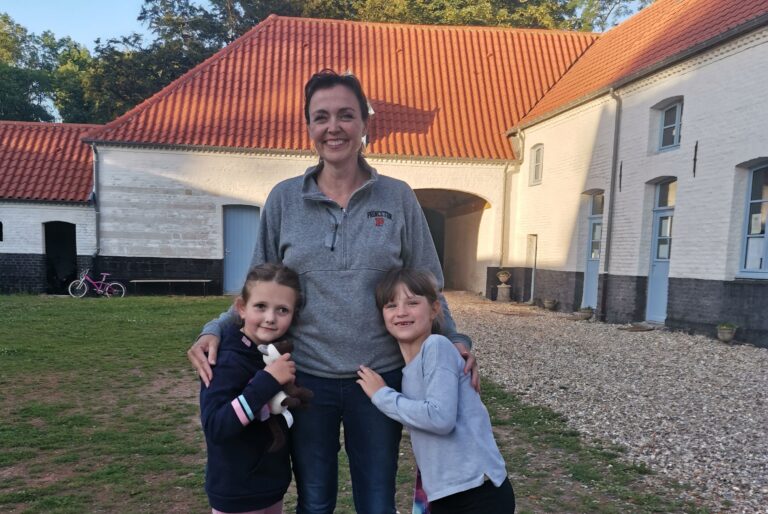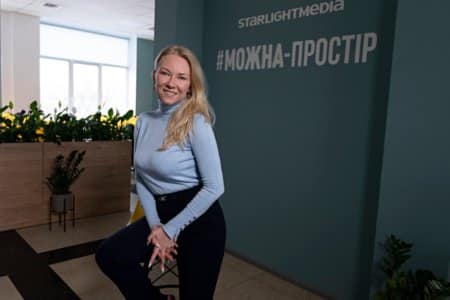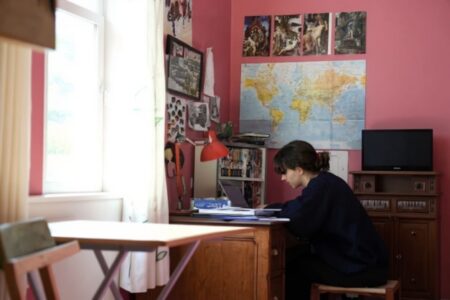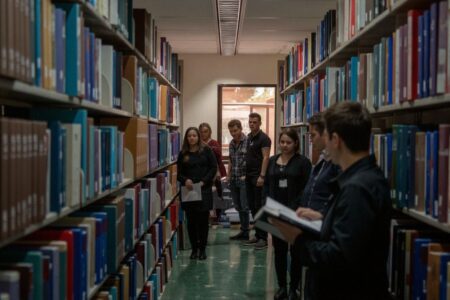
2022 was a year of many highlights. COVID-19 eased, Queen Elizabeth II passed, Argentina won the FIFA World Cup, and Elon Musk bought Twitter (but not yet rebranding it to X), to name a few.
It was also the year that Russia launched a full-scale invasion of Ukraine, escalating the war that began in 2014.
This invasion has become the largest attack on a European country since World War II. As of April 2024, it has displaced over 9.8 million Ukrainians both within and outside Ukraine’s borders. Statista reports that Russia, Germany, and Poland received the most Ukrainian refugees, with each country having upwards of 950,000 refugees seeking asylum.
While help for these refugees are many and varied, Mary Meaney did not want to sit back and let the world run its course.
Born and raised in Texas, Meaney earned her bachelor’s degree in public and international affairs at Princeton University before obtaining her PhD in Politics from the University of Oxford.
From there, she was part of the consulting firm McKinsey & Company for nearly 26 years. She published a book called “Leading Organisations: Ten Timeless Truths” and worked with dozens of CEOs from the world’s largest and most successful companies across six continents and 30 countries.
Now, she’s a member of the Imperial College Council and a member of the Advisory Board of Imperial College Business School.
It’s been an illustrious career. Yet, no matter how busy she was, Meaney has always combined her high flying with some form of social work, primarily with children and education.
Summers in Princeton were used to teach 13-year-old girls in a school in the South Bronx; at Oxford, she spent a summer working in a high school in Kenya. At McKinsey & Company, pro bono projects were a norm on Meaney’s calendar. She was even with Teach First, a social enterprise registered as a charity addressing educational disadvantage in England and Wales, for nine years.
It’s no surprise, then, to find out that Meaney grew up in a family with a strong sense of mission and service, supporting the community and giving back.
Her parents welcomed Vietnamese refugees in the mid-1970s while her grandmother took in people from North Africa during the Algerian War; her great-grandmother took in French refugees during World War II when they were fleeing south.
Now, she’s continuing the family tradition and extending her help to Ukrainian refugees in France.
“When the invasion happened, I knew I had to do something. I couldn’t just sit on the sidelines; I needed to figure out how I could help,” says Meaney. “I asked my husband, we have quite a big place and had room to spare, what do you think about the idea of welcoming a couple of families? And he immediately said yes. I asked my kids, and they were all up for it. That’s how we started.”
Presently, Solidarité Ukraine, Meaney’s non-profit effort that initially began as (in her words) a “Mom and Pop and Kid organisation,” has hosted over 100,000 nights and 300,000 meals for the Ukrainian refugees in this small area in northern France.
We spoke to Meaney about her work with Solidarité Ukraine and what lies in the future of the organisation.

Meaney’s 18th-century farm also acts as a space for them to host Ukrainian families. Source: Mary Meaney.
What motivated you to start helping Ukrainian refugees?
We had taken over a family home in Tilques in northern France. It is a 12th-century medieval castle, and we bought a beautiful 18th-century farm too. So I had space, I had time, and I had also worked with one of the largest companies in Ukraine. I knew a lot of senior executives there, so, of course, the first thing I did when the invasion happened was write to them saying that if you need a safe place, please come, we’d be happy to host you.
Besides, I’m a mother — I have six children. I could see the pictures of all these women and children in pretty desperate situations, so I naturally wanted to help.
Initially, I thought I’d sign up and help out with the French government scheme for Ukrainian refugees and host some families. But then it became quickly apparent that the government wasn’t moving very fast, so if I wanted to do something quickly, I would need to organise it myself.

Even having animals to pet and interact with can be a way with helping the younger Ukrainian children adapt to their new environment. Source: Mary Meaney.
You didn’t have the team that you had in McKinsey & Company for the start of Solidarité Ukraine. How did that go?
Literally, my first team were my children.
My oldest, Isabelle, wrote the guide for the French host families. Claire, number two, helped us run the summer camp and spent her breaks chauffeuring Ukrainian children to dental appointments and doctor’s visits. Our third, Emily, created our website from scratch in a weekend.
Our fourth, Laura, went to all the local churches and rallies and gave speeches, getting people to give as much as they could, even if it was a can of beans or a blanket. Our two youngest, Luke and Lucy, decided their contribution was to get more animals that the Ukrainian children could pet. They learnt how to speak Ukrainian on Duolingo, and my son actually speaks fluent Ukrainian now.
What does Solidarité Ukraine look like today?
It became more of an orchestration of a broader community effort — we’re 100% volunteer-run. From the beginning, people brought food, clothes, and bedding or volunteers would help host families.
With help from a partner organisation, we have helped these Ukrainian refugees access psychologists who speak Ukrainian and Russian to give them psychological support. We dealt with all the medical needs. We created an organic farm. We became an employment agency, a French language school, a driving clinic – you name it, we did it. It is pretty holistic.

Solidarité Ukraine focuses on helping Ukrainian refugees in northern France with their needs, as well as sending humanitarian support to those still in Ukraine. Source: Mary Meaney.
What are the key objectives of Solidarité Ukraine?
We have a dual objective, and the first of those two is to support all the Ukrainians who are in this part of northern France.
Our commitment begins from the moment the woman and her baby get on the bus until she is fully independent. That could be when she decides to return to Ukraine or when she’s fully independent in France — we will do whatever we can to support her.
If she needs a dentist, we’ll find a dentist; if she needs baby equipment, we’ll get her baby equipment. If she needs a place to live, we’ll find her a place to live. If she has a plumbing problem, we’ll find somebody to help solve the problem. So, the first major objective is to support the Ukrainians who are here.
The second objective is to provide humanitarian support to Ukraine. We’ve been collecting medical supplies, such as medical beds. A clinic in the town was in the process of changing out its equipment, so it donated 50 medical beds, which we shipped off to Ukraine.
We’ve also sent generators, warm clothes, blankets, and food. Now, the big focus is on medical supplies, so we’re sending a lot of bandages, first-aid kits, tourniquets, and similar items.
Can you share some stories of the support Solidarité Ukraine has seen so far?
I once showed the mayor of the town the back garden, and it was in a terrible state then. I was hoping to plant fruit and vegetables in the garden, and sure enough, the next time he was around, he was driving his own tractor and ploughing up the soil. After that, the older people in the village and the Ukrainians got together to plant the vegetables, so now we have an actual working farm that supplies the Ukrainians with fresh produce.
Another experience was with our lovely neighbour. I had a tree that fell over to his field, but I had a lot on my plate at the moment to go get it removed. Then I got this text from him — and I had been dreading it, really — but all it said was, “Don’t worry about the tree; it’s not a problem.”
He followed that with how his house wasn’t very big, so he wasn’t able to host any Ukrainian families, but he did have cows, and he was going to bring over some milk. It was very helpful because I had 29 Ukrainians staying either in the castle or at the farm, and 25 of them were kids, so I really needed the milk.
Something that happened more recently was that this stranger showed up in a car without any warning. He was handicapped, and he wanted to pass us his old wheelchair so we could send it to Ukraine. It was just a quick interaction, but it was pretty memorable and amazing to see the generosity of people, especially strangers who you don’t even know the name of.

Solidarité Ukraine primarily focuses on helping Ukraine women and children in northern France. Source: Mary Meaney.
What has been the most rewarding thing about the work Solidarité Ukraine has done?
There are three things. The first one is, obviously, the impact on some of the families.
We haven’t been perfect, but we’ve tried to do the best we could. And by and large, when you see kids who were screaming every night who are now happy and smiling, that would be the most important thing we’ve achieved.
The second thing is, I think it’s given more perspective to me and also to my family.
For example, I had a really crappy day at work with one of my boards one day, and I was feeling really angry and frustrated about how things were going. But when I spoke to my daughter about it, she simply said, “You know, Mom, I get it. But you have to remember, your country hasn’t been invaded, your house hasn’t been destroyed, your husband hasn’t been killed, and your son isn’t fighting on the front.”
And she’s right. In the grand scheme of things, my little problem with this particular situation is nothing. So it’s given perspective to me, but also to my kids. It’s taught them to be generous. Before we even started, I said to them that we were gonna share everything, from the toys to the bikes to the playgrounds and gardens. That’s not always easy, because sometimes stuff gets broken or disappears or what have you, so they’ve learned to be generous and to be kind.
The last thing is that it’s definitely restored my faith in humanity. To see the generosity and the kindness of the local people here, but also to see the courage and the resilience of the Ukrainians.
They came into the complete unknown. For all they knew, we could have been a human trafficking ring, but they took a leap of faith. There’s Yuliya, an absolutely lovely, beautiful Ukrainian woman who’s a lawyer and accountant. Her apartment and summer home in Ukraine have been completely destroyed, but she still smiles. So it’s extraordinary to see how resilient and courageous they are.
Learn more about Solidarité Ukraine here, or tune in to Meaney’s TEDx Talk here.










